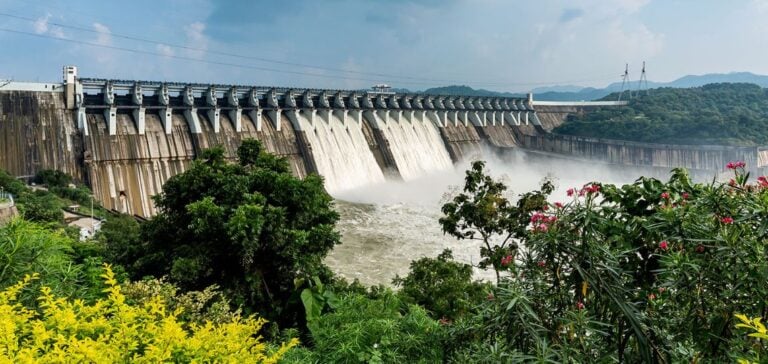In August 2024, Gujarat’s hydroelectric power stations reached a record level of electricity production, confirming their central role in the Indian state’s energy supply.
This performance comes against a backdrop of rising energy demand and a strategic shift towards energy sources less dependent on fossil fuels.
Recent data show a significant increase in production capacity, resulting from ongoing improvements in infrastructure and water resource management.
Infrastructure optimization and resource management
Efforts to modernize hydroelectric facilities played a key role in achieving this new record.
Improved turbines, enhanced water retention capacities and precise management of hydraulic flows have all contributed to greater energy efficiency.
The increase in production capacity reflects a desire to maximize the use of available resources, while meeting the growing demand for electricity more reliably and more cheaply.
Strategic context and economic implications
This level of production is in line with India’s energy objectives, which aim to reduce the share of fossil fuels in its energy mix.
Hydropower, with its regulation and storage capacities, plays a stabilizing role in a system that is increasingly integrating intermittent sources such as solar and wind power.
Increased production in Gujarat is also a response to the needs of an expanding domestic market, while offering opportunities to export energy to other states, thereby strengthening the region’s economic position.
Prospects and challenges for hydropower
The prospects for hydropower in Gujarat depend on the sustainable management of water resources and adaptation to hydrological changes.
Fluctuating rainfall, influenced by climatic factors, represents a challenge for the long-term planning and management of generating capacity.
In response, regional integration and inter-state cooperation strategies are being studied to better balance supply and demand.
The recording of this new production record by Gujarat’s hydropower plants highlights not only the evolution of India’s energy sector, but also the management and planning dynamics required to meet ever-growing energy demand, while optimizing the use of existing resources.






















